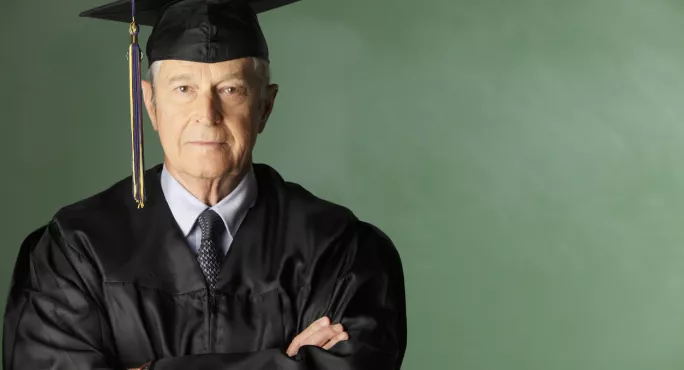What happens when you follow Gavin’s behaviour tips?

Generally speaking, it is widely accepted that making a sweeping generalisation about a subject on which you have limited knowledge is a brave move. Something along the lines of “all women love baking” or “men are naturally good at mending things”. Or “politicians work hard to do their best for us”.
Making several generalisations in the course of one interview is possibly unwise. Basing those remarks on practically non-existent evidence is nothing short of dangerous.
And yet this is precisely what your friend and mine, Gavin Williamson, has done this week. This guy really knows how to whip up a crowd.
Teacher-training centres up and down the country should look to Gavin for his worldly commentary on behaviour, and employ it post-haste. His nuggets of purest gold are there for us all, regardless of how many years we have spent on the frontline.
Covid and schools: what happens if you follow Gavin Williamson’s behaviour advice?
But for the inexperienced newly qualified teachers about to embark on their first year of delivering education, here is a quick explanation of Guru Gav’s words of wisdom and what they will mean for you as you open that classroom door into your first Year 9 lesson.
1. What Gavin says: standing at the front with kids in rows facing you is a “powerful tool”
What this really means: teacher at the front is Victorian, which is probably what he also means by “traditional”.
In reality, “teacher at the front” is hugely boring and frustrating for the teacher. Teacher at the front is a certain type of student’s dream because, if you are more than two rows back, you can eat a late breakfast, drink a can of Monster, text your mates, kick the kid in the row in front or even slink down on to the floor and have a quick kip.
They are “powerful tools” in enabling the distancing of more than half the class while you play to the front row.
2. What Gavin says: having pupils face the front and separating year groups reduces bullying and exclusions
What this really means: facing the front makes group discussions ineffective. It makes learning conversations ineffective. It makes collaborative work ineffective. It makes practical work ineffective.
Facing the front makes shouting across the room to ask your friend to lend you a pen quite easy, and it actually makes the urge to chuck stuff increase exponentially.
Separating year groups is fast becoming an urban myth. The bundle in the corridors at lesson changeover is all the proof you need. As is the scramble for the bus at the end of the day.
It doesn’t reduce bullying because bullying is insidious; it will find a way regardless.
As for exclusions, this past year has probably been a record low because - oh, hang on - we haven’t been at school that much. Go figure.
3. What Gavin says: it’s great that schools and colleges are working hard “at the moment” to create a behaviour culture
What this really means: Gavin doesn’t think that schools and colleges have done this so far, and it is probably thanks to him and the whole Covid-safety-measures thing that behaviour systems are allegedly better than before.
Gavin doesn’t think that schools and colleges were bothered about behaviour until Covid came along, which is probably true because a lawless society is really conducive to a calm and productive learning environment, where each child has an equally rewarding educational experience and gains the tools to equip them to be a responsible member of society.
This means that, from now on, you will be expected to extend the current practice indefinitely. Because somehow - through the power of pixie dust and wishes - Gavin thinks that everyone has become a perfect little angel incapable of anything other than immaculate comportment.
So there you have it. More helpful, thought-provoking pedagogical pontificating on which to ponder. Now get out there and remember: the government knows best.
Zoë Crockford is an art teacher at a secondary school in Bournemouth
Register with Tes and you can read two free articles every month plus you'll have access to our range of award-winning newsletters.
Keep reading with our special offer!
You’ve reached your limit of free articles this month.
- Unlimited access to all Tes magazine content
- Save your favourite articles and gift them to your colleagues
- Exclusive subscriber-only stories
- Over 200,000 archived articles
- Unlimited access to all Tes magazine content
- Save your favourite articles and gift them to your colleagues
- Exclusive subscriber-only stories
- Over 200,000 archived articles